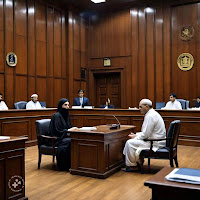Introduction

Child custody is one of the most sensitive and emotionally charged issues during or after a divorce. In Pakistan, child custody law is governed by both Islamic principles and statutory laws such as the Guardian and Wards Act, 1890. Understanding how child custody law in Pakistan works can help parents navigate this legal process with clarity and awareness.
What is Child Custody?
Child custody refers to the legal guardianship of a child. It determines who will be responsible for the upbringing, education, and welfare of the child after the separation or divorce of the parents.
Types of Custody in Pakistan
There are different types of child custody arrangements under Pakistani law:
1. Physical Custody
This refers to the day-to-day care of the child. The child lives with the parent who has physical custody.
2. Legal Custody
Legal custody allows a parent to make important decisions about the child’s education, religion, and health.
3. Joint Custody
In some cases, the court may allow both parents to share custody, depending on the child’s best interests.
Legal Framework for Child Custody in Pakistan
The main law governing child custody in Pakistan is the Guardian and Wards Act, 1890. This law empowers the family courts to appoint a guardian for a minor if both parents are separated or divorced.
The court always considers the “welfare of the minor” as the most important factor. This includes physical, moral, and emotional wellbeing.
Who Gets Custody of the Child?
According to Islamic law and Pakistani legal tradition:
- Mothers usually get custody of young children (especially under the age of seven for boys and until puberty for girls), unless proven unfit.
- Fathers usually have the right of guardianship (wilayat) and may gain custody after the children reach a certain age.
- The court can grant custody to either parent or a third party, depending on the best interest of the child.
Factors Considered by Courts
The court takes several factors into account when deciding child custody:
- Age and gender of the child
- Financial status and character of the parents
- The emotional and physical needs of the child
- Willingness and capability of the parent to take care of the child
Visitation Rights
The parent who does not have custody is usually given visitation rights. This allows the non-custodial parent to maintain a relationship with the child.
How to File for Child Custody in Pakistan
Here’s a simple guide to file for child custody:
- File a custody petition in the Family Court.
- Submit supporting documents (birth certificate, marriage certificate, etc.).
- Attend court hearings and mediation sessions.
- Wait for the court’s decision based on the child’s welfare.
Modification of Custody Orders
Custody orders are not permanent. They can be modified if there is a major change in circumstances or if it is in the best interest of the child.
Conclusion
Navigating through child custody law in Pakistan can be emotionally challenging, but understanding your rights and responsibilities can make the process smoother. Always prioritize the child’s emotional and physical well-being. Seeking legal advice from a family lawyer is highly recommended in such cases.

